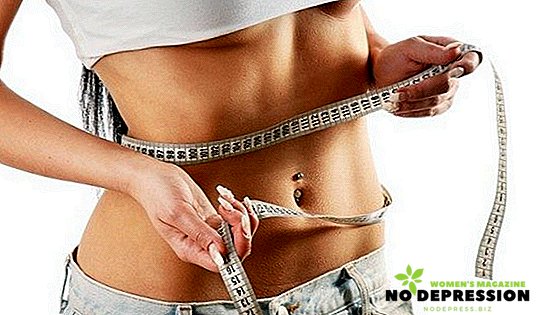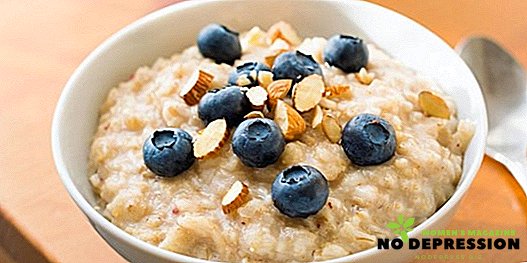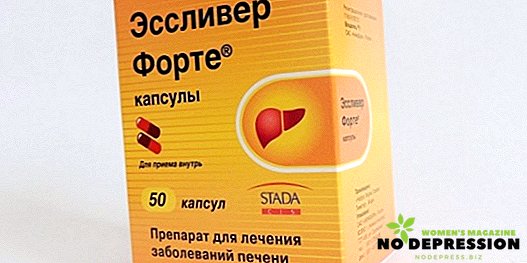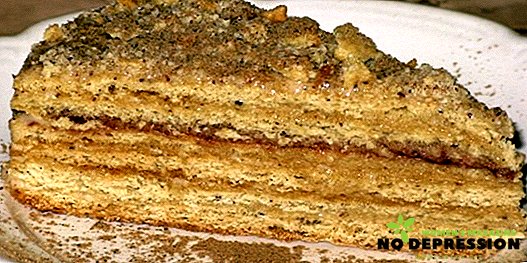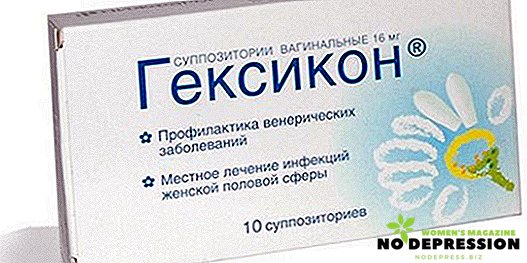Nutrition nursing mom - a reason for disputes and discussions. Opinions of specialists and mothers were divided. On the one hand, a strict diet, compliance with the 1000 and 1 norms, on the other - the minimum restrictions and the permissibility to use almost any food. Which of them is right and where to look for a middle ground?

General principles of diet in the first month after birth
Diet in this context is not quite the correct term, as the list of permitted and prohibited for each woman is individual. Under the diet means the exclusion from the diet of a small amount of clearly "harmful" products and the use of useful, as well as, depending on the individual well-being, controversial products.
The fundamental principles of the "diet" of the mother in the first months of the child's life:
- in the first postnatal week, the richest diet: consists of hypoallergenic products;
- the menu should include basic foods, milk and dairy products, meat, fruits and vegetables;
- Entering a new product follows a strict pattern - use, watch the reaction;
- The list of allowed to expand gradually.
Nutritional value during lactation
Food provides:
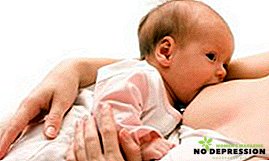 milk saturation with all necessary substances;
milk saturation with all necessary substances;- milk fat management;
- the condition of the baby’s stool;
- intestinal microflora saturation with beneficial bacteria;
- healthy sleep;
- immunity of the newborn.
A well-fed baby, who received everything he needs, sleeps well, walks happily, poops in a timely manner. If all three points are met, the mother eats properly.
Sitting on a diet in the literal sense of the word throughout the entire period of HBG - to deprive the crumb of the lion’s share of everything necessary, which is fraught with a shortage in weight and the development of pathologies.
Light fat-free meals will not allow the milk to become moderately fat, the baby will not be satisfied, constant crying and lack of weight are guaranteed. Fat milk causes constipation. It is important to understand that the fat content of milk depends not only on food, but also on the features of the metabolism of the mother. You can eat only water, and the milk will be like sour cream, and you can eat kilograms of butter, and the milk will be like water. The task is to control the amount of calories consumed, depending on the individual characteristics of the metabolism to achieve a normal fat content of milk.
The intestine of a newborn is empty. There is no microflora in it. With each sip, the baby receives the necessary lactobacilli responsible for the formation of primary immunity, assimilation and digestion of food, normalization of stool. The more natural elements that enter the intestine, the better. The less artificial elements appear in the intestine, the faster the microflora will form.
Sleep baby depends on satiety and comfort. Natural disturbers of sleep: colic, bloating, frustration, hunger, overexcitement. Hunger occurs due to a lack of calories in milk, over-stimulation can occur due to the coffee that was drunk by mom, discomfort in the intestines is caused by products for the digestion of which enzymes are not produced.
Eat right: what and how you can eat
Fundamental points:
- you can eat everything that does not harm;
- priority is boiled, stewed, baked and steamed dishes;
- the diet should be varied, consist of meat, fish, dairy products, vegetables and fruits;
- A woman’s diet should consist of at least 3, and preferably 5 meals.
The menu of the first week consists of dietary, safe products:
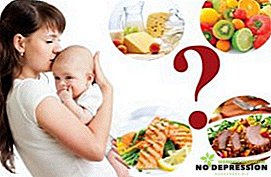 vegetable soup;
vegetable soup;- eggs;
- cheese;
- cottage cheese;
- compote;
- weak tea;
- apples, bananas;
- dairy products;
- porridge, except rice.
The diet is expanded from the 2nd week:
- low-fat chicken or turkey broth;
- boiled beef, fish, chicken liver;
- fresh seasonal vegetables and fruits.
New food is introduced according to the scheme:
- for breakfast eat a small portion;
- for 2 days, do not introduce any new products into the diet, monitor the reaction of the newborn;
- if there are no side effects, you can enter into the diet on an ongoing basis;
- if side effects are present - exclude at least 2 weeks.
Cow's milk is a stumbling block. 50% of opinions prohibit its use, the second 50% - strongly recommend. To decide on the appropriateness of its use is based on the method of the sample - use and look at the reaction. An adverse reaction is - refuse, no - enter into the diet.
Unwanted Products
Nursing mothers are strictly prohibited:
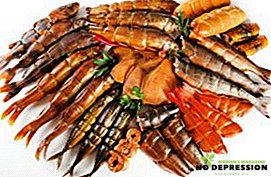 alcohol in any doses and types;
alcohol in any doses and types;- preservatives;
- glutamates;
- thermally raw fish and meat;
- mushrooms in any form.
The harm of alcohol on the child's body is obvious. Preservatives and glutamates are not able to be digested and absorbed due to the lack of enzymes: allergic reactions occur, disturbances in the digestive system, harmful substances are deposited in the body and slowly poison it.
Nobody, never and under no circumstances smokes, does not salt or dry edible fish and meat for large-scale production. All fish and meat products of this type in stores and supermarkets are not made entirely of fresh raw materials. In addition, in animals, especially fish, there are parasites. Without proper heat treatment, they retain the ability to continue to exist, they settle down in the woman's body and inject poison into it (the most common feature of parasites is to inject microscopic doses of poison at the bite site). The poison causes severe intoxication in both the adult and the child. Treatment involves the use of drugs prohibited in HB.
Mushrooms are hard processed by the body. Enzymes that can properly digest and assimilate them are produced in a child upon reaching 11-12 years old. Until this time, mushrooms are forbidden to use. In addition, there is a chance to get botulism, which in infancy is fraught with death.
Depending on the state of health of the child and the degree of development of his enzyme system, restrictions are imposed on the following types of food:
 red and orange vegetables and fruits are strong allergens that can cause diathesis, rash, angioedema;
red and orange vegetables and fruits are strong allergens that can cause diathesis, rash, angioedema;- fatty food - contributes to constipation;
- fried foods - rich in carcinogens, very fat;
- coffee - increases pressure, increases heartbeat, causes overexcitement;
- allergen chocolate;
- rice - contributes to constipation;
- prunes - contributes to the liquid stool;
- non-homemade cakes and pastries - contain artificial colors, flavor enhancers, preservatives, etc .;
- legumes and sauerkraut - contribute to bloating, colic;
- salty food.
Snacks, salted fish, homemade pickles, etc. enriched with salts. Salt delays the removal of fluid from the body. Water enters the cells and remains in them - swelling occurs. Edemas are dangerous because the thin blood vessels are compressed by swollen tissues, the blood supply is disturbed, the supply of oxygen to the cells deteriorates, and for the infant this is fraught with pathologies and disturbances in the work of most systems and organs. In addition, salts are deposited in the joints, disrupting their performance.
The use of controversial products is permitted in the absence of a negative reaction in a particular child. It is recommended to try them after 4 months - the enzyme base and microflora are partially formed, children do not suffer from colic.
Features drinking regime
It is recommended to drink often in small portions. It is advisable to carry a bottle with water everywhere and quench thirst at the first urge.
If there is no disturbance in lactation, water is the optimal source of fluid. With a shortage of milk, you can resort to either popular recipes or specialized pharmaceutical drugs.
How to make your own diet
 The 5-time diet was invented and adjusted for us in the last century:
The 5-time diet was invented and adjusted for us in the last century:
- 1st breakfast - porridge with fresh / stewed / boiled / baked vegetables, cheese / egg, tea;
- 2nd breakfast - fruit;
- lunch - first course and bread;
- afternoon tea - dairy products, bun without creams, poppy seeds, jam / diet cookies;
- Dinner - a dish rich in calcium: cottage cheese, casserole, milk porridge, curd mass (from the store).
The task of any mother is to include in the menu the products allowed for her and her child, depending on the individual characteristics and age of the baby.
Tips of Dr. Komarovsky
- No diets.
- You can eat everything that you ate before pregnancy and before delivery, the main thing is not to experiment.
- Alcohol is absolutely prohibited.
- Coffee can be. The main thing to remember is that an excess of caffeine disrupts the child’s sleep.
- The recommended rate of seafood per week is 300 g.
- Breastfeeding is not a reason to starve! The norm of calories for a nursing woman is 400-500 units more than that of a non-feeding one.
- A varied diet is recommended - meat, fish, dairy products, fruits, cereals.
- A product that causes a particular problem in a child should preferably not be eliminated, but rather reduced intake.
- In the presence of food habits (vegetarianism) in the diet should include specialized nutritional supplements, replacing those products that are not consumed.
- The amount of milk is directly related to the amount of fluid in the body. When overheating, sweating lactation decreases. It is advisable to drink water, compotes, until such time as there is a pronounced sensation of thirst and dry mouth.
Debunk Myths
To experience hardships and anguish throughout the entire period of HS and the next 18 years of a child’s life is a delusion that has come from the depth of ages. Until now, the idea that the worse she was, the better she showed herself as a mother, lives in the minds of women.
Myth 1 - Self-Service Pedestal
Leading psychotherapists, psychologists, family specialists and sensible pediatricians argue that the happier the woman herself, the happier her child. Evil, hungry, sleepy mother is not able to sensibly assess the condition of the child, to provide him with everything necessary from both the physical and mental health.
Only a beautiful and contented wife is able to keep her husband, not to make him feel superfluous, which means to save the family without forcing her husband to seek love and care on the side.
Myth 2 - strict prohibition
A strict ban is always imposed only on the fact that at any doses and conditions it causes significant harm.
Controversial products are controversial - not all and not always cause a negative reaction in the children's body. It is possible and necessary to try! But neat.


 milk saturation with all necessary substances;
milk saturation with all necessary substances; vegetable soup;
vegetable soup; alcohol in any doses and types;
alcohol in any doses and types; red and orange vegetables and fruits are strong allergens that can cause diathesis, rash, angioedema;
red and orange vegetables and fruits are strong allergens that can cause diathesis, rash, angioedema;